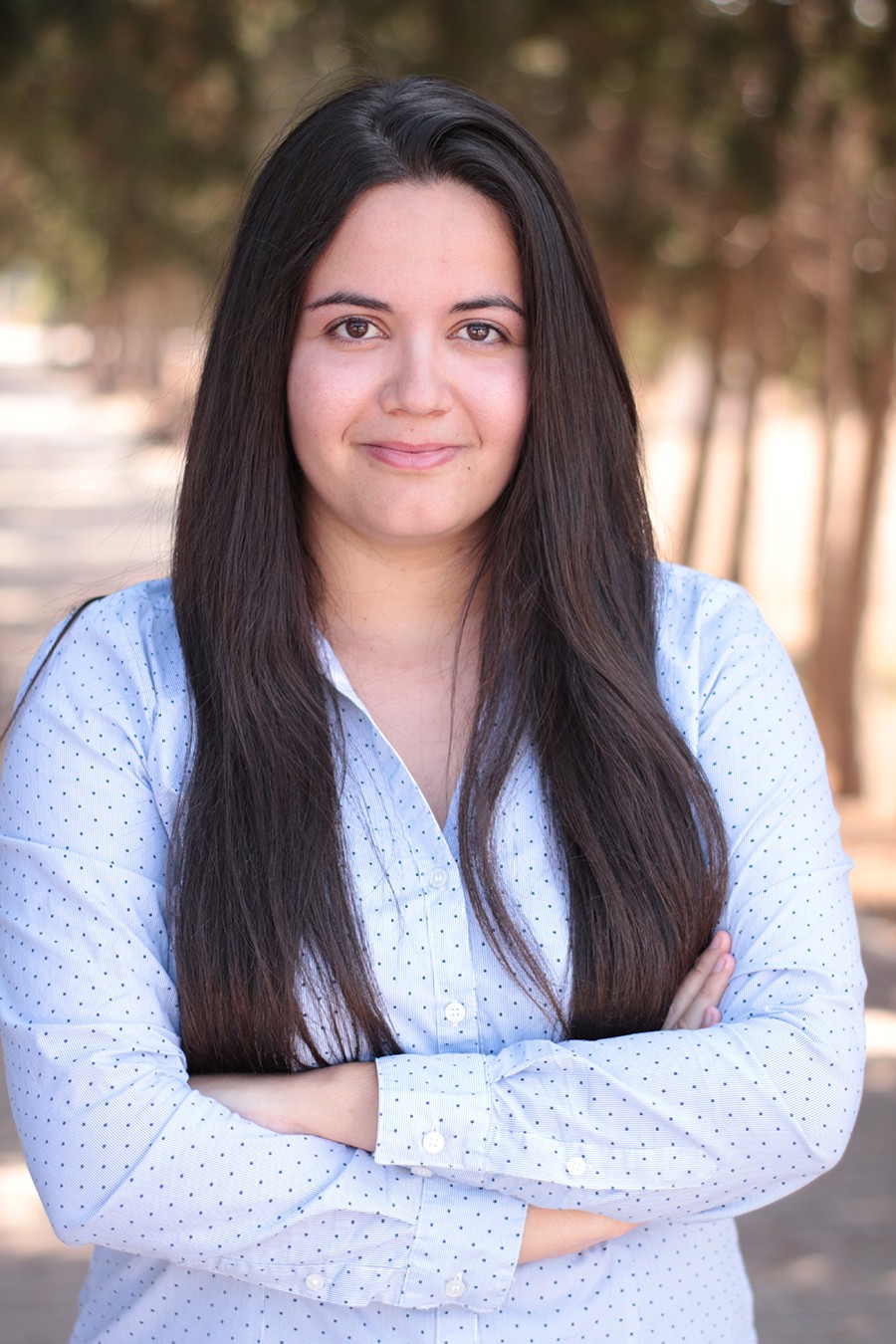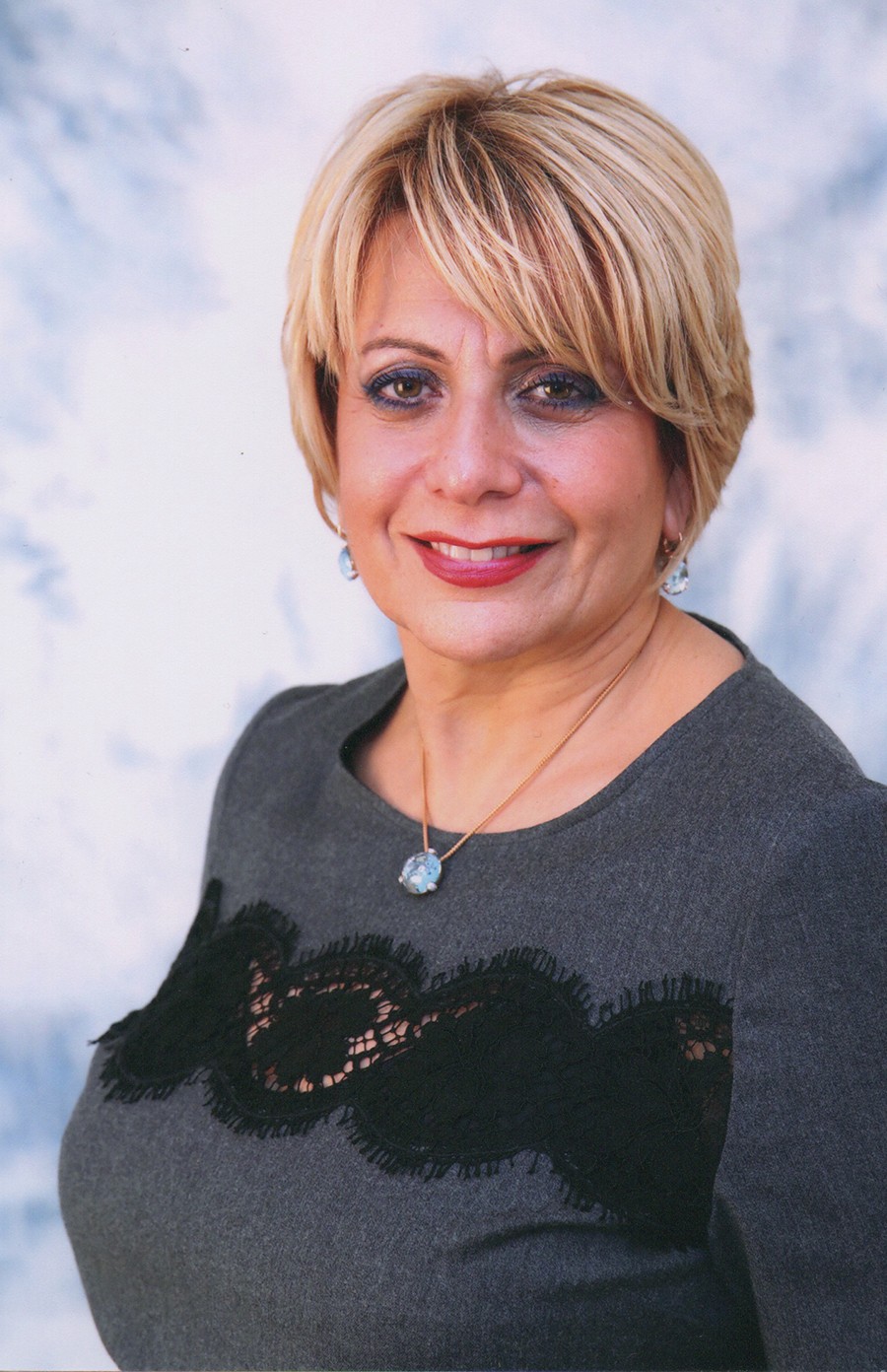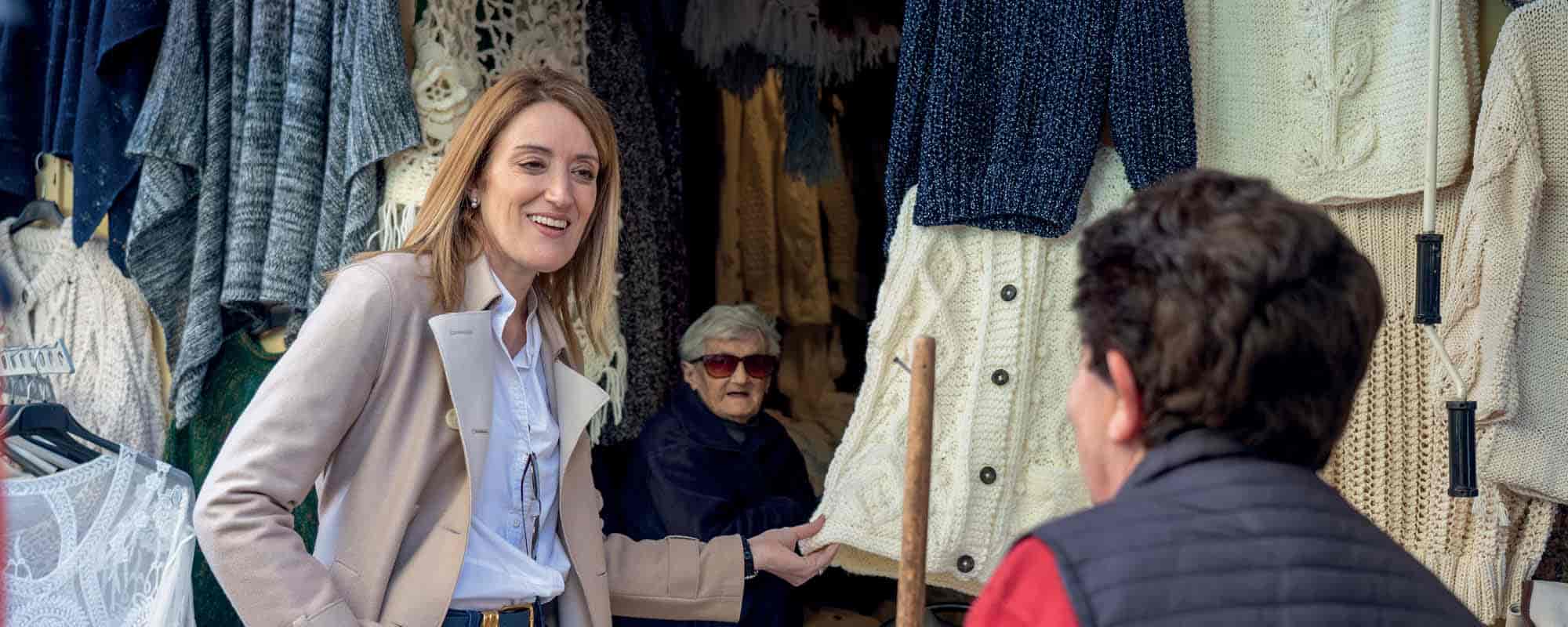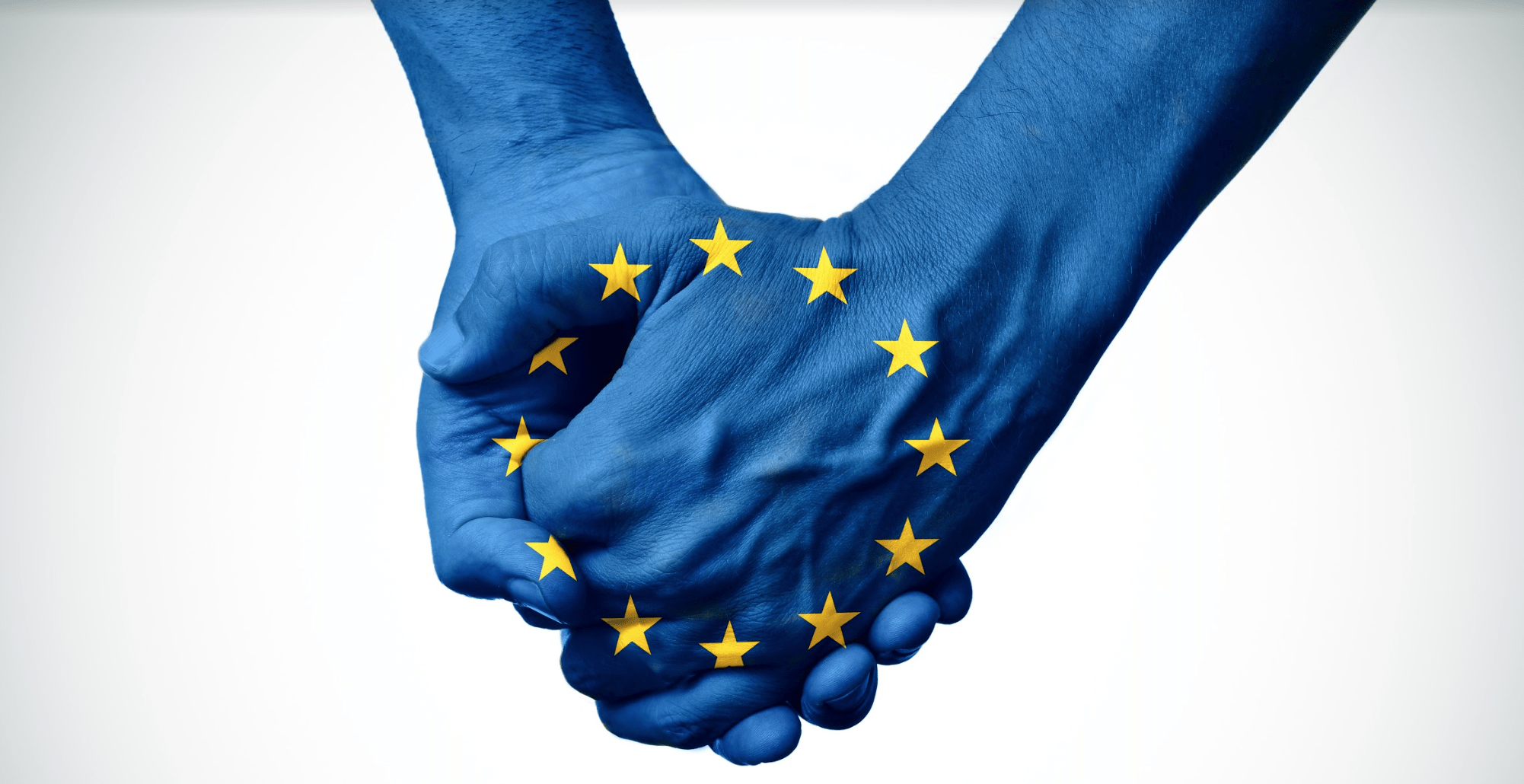Roberta Metsola took the helm of the European Union’s core decision-making body after a political career characterised by dedication and leadership prowess. With a year-long experience of being the President of the European Parliament, Metsola, a University of Malta (UM) alumna, talks to THINK magazine about the oft-bumpy road to the prestigious role.
Continue readingThe Climate Crises and the EU’s Agricultural Policies
The climate crisis is picking up speed, and it still doesn’t look like humanity is adjusting its habits fast enough to meet its self-set target of limiting global warming to 1.5°C. The European Union (EU) strived to tackle this problem by implementing the Green Deal, which led to the most ambitious multi-year plan ever in the agricultural sector. But is it enough?
Continue readingSTEM ambassadors thrashing stereotypes
Over the last four decades, STEM industries have risen to great heights. Scientific, technological, engineering, and mathematical minds have been called to rally. And the demand continues. How can you contribute?
Few would dispute that technological and scientific advancements dominate the 21st century. Adverts provide ample proof. From tablets to smartphones, to robot home appliances and driverless cars, our world is changing fast. As a result, we are now living in a global knowledge-based economy where information can be considered as the highest form of currency. This reality comes with both benefits and challenges.
Statistics from 2013’s European Company Survey show that 39% of European Union-based firms had difficulty recruiting staff with STEM skills. Malta is no exception. Another report in 2018 showed that people with STEM careers are still in short supply locally, especially in the fields of healthcare, ICT, engineering, and research. So, while the jobs are available, there aren’t enough people taking up STEM careers, and this is holding Malta back.

There are many reasons for this trend. For one, Malta has a low number of tertiary level graduates; the third lowest in the EU. An array of harmful stereotypes can also shoulder some blame. The ‘fact’ that people in math, science, and technology ‘don’t have a social life’ is unhelpful. The ‘nerd’ image is still prevalent, especially among the younger generations that are still in primary and secondary school. Then there is the ‘maleness’ associated with STEM jobs and industries. According to Eurostat statistics, in 2017, from 18 million scientists and engineers in the EU, 59% were men and 41% women.
Still, this is far from the whole picture.
Employers have reported instances where, despite having enough graduates to fill roles, applicants did not possess the right non-technical skills for the job. This was especially true for abilities such as communication, creative thinking, and conflict resolution.
Many were unprepared to work in a team, to learn on the job, and to problem solve creatively. This is a real concern, especially for the country’s future. At the rate with which markets are evolving, a decade from now young people will be applying for jobs that do not exist today, and the country needs to prepare students for these roles. And it has to start now.
The Malta Council for Science and Technology (MCST) is trying to do this through an Erasmus+ project called RAISE. They are launching an Ambassador Programme to empower young students to take up the STEM mantle. STEM Career Cafés are going to be popping up in schools all over Malta, alongside a Career Day at Esplora aimed to inform and inspire. This is where you come in.
They want undergraduates from the University of Malta and MCAST to work with Esplora by sharing your experiences in STEM and telling your stories to encourage those who may be considering a STEM career. STEM Ambassadors will gain important public engagement skills while making research and science careers more accessible.
STEM is crucial in our contemporary world; our economies depend on it. It has completely changed the way we live and opened up new prospects for a future we never imagined. For those who have already made up their mind to be a part of it, there is now the opportunity to empower others and guide them in finding their own path.
Note: To become a STEM Ambassador, email programmes@esplora.org.mt or call 2360 2218.
The MCST, the University of Malta, and the Malta College of Arts, Science and Technology have embarked on a national campaign to promote STEM Engagement. Its first activity was a National STEM Engagement Conference.
Research to business plan: A metamorphosis
Author: Michelle Cortis

In recent years, there has been a shift in the relationship between research and commercial industries. Commercial viability almost always comes into question for ongoing research. Commercialisation can be a boon. When a research project has demonstrated its potential to become a viable business, funding opportunities increase, meaning the research can be turned into a product or service that people can use.
In 2018, as part of a Masters in Knowledge-Based Entrepreneurship, I analysed the commercial potential of an ongoing University of Malta project. I conducted an in-depth market feasibility study on Prof. Ing Joseph Cilia’s Smart Micro Combined Heat and Power System, a device that can be fitted into homes and offices to deliver heat as a by-product of electricity, reducing energy costs. Many EU countries are setting up incentives to make these systems more feasible and attractive to consumers.
For my dissertation, I developed a business plan for the research team. An engineer myself, and having earned a Masters by Research back in 2014, this was different to anything I had done before. My supervisors, Prof. Russell Smith and Dr Ing. Nicholas Sammut, helped me find the right balance between utilising my technical knowledge whilst also analysing the product’s commercial potential. Even my language changed through the process; I began to speak of ‘euros per day’ rather than ‘kilowatt hours’. I learnt to differentiate between technological features and what real benefits future users would gain.
Being presented with a physical product, initially one may assume that it is to be sold to customers, or protected through a patent and licensed to the private sector. However, my market analysis revealed new target audiences that had not been thought of before. Selling the device was not the only way to exploit the project’s commercial potential. What if we leased the product instead of selling it? Should we continue developing the product or is it already innovative enough? What if we developed a spin-out—would it be too expensive or is it worth the investment?
By analysing a project through a commercial lens, all these questions arise, pointing out potential ways to make a good project great. But what makes a good business plan great is when all these questions are answered.
The Project ‘A Smart Micro Combined Heat and Power System’ is financed by the Malta Council for Science & Technology, for and on behalf of the Foundation for Science and Technology through the FUSION: R&I Technology and Development Programme.
Are you carrying out research at the University of Malta which you think may have commercial potential? If so, contact the Knowledge Transfer Office on knowledgetransfer@um.edu.mt
HERCULE project
The taxes of every citizen in the European Union (EU) contribute to the EU’s immense budget, and measures are needed to ensure these funds are used properly. Benjamin Charles Cassar talks to Prof. Ivan Sammut and Dr Jelena Agranovska, who are studying the effectiveness of such measures at a national level.
The EU’s Institutions operate throughout the continent on a massive scale, and in the 51 years since its conception, the scope of the EU has expanded to affect each and every one of our daily lives. The world would be very different without the Union.
But this progress has not been without its hiccups. As Brexit’s deadline creeps closer, other countries, such as Hungary and Poland are experiencing political turbulence and rising Euroscepticism. Come the European Elections in May, these issues will bare their teeth.
Despite this, the EU has had momentous victories in its pursuit of continental integration. Take, for example, the Common Market allowing for easy trade, the Schengen jurisdiction that simplifies travel, and the much-lauded mandate for free data roaming. The EU has also been moving towards harmonising its efforts to protect its financial interests.

In view of this, over the past few months, Prof. Ivan Sammut and Dr Jelena Agranovska (Faculty of Laws, University of Malta) have been leading the Hercule Project, a comparative study that looks into the implementation and enforcement of European Criminal Law. Together, they are investigating the development of legislation, focusing on the recent PIF (Protection of the Union’s Financial Interests) Directive. The aim is to increase people’s confidence in EU institutions and ensure that funds are managed transparently and appropriately.
Apart from the legislative side, the study will also look into the bodies that work to protect the EU’s (and thus all its citizens’) financial interests—namely the European Public Prosecutor’s Office (EPPO), the European Anti-Fraud Office (OLAF), and Europol.
To this end, Sammut and Agranovska selected 12 countries based on their size, geography, and legal system to gauge each state’s reception of European legislation. These countries include Germany and Malta, among a number of others.
Each country report is being handled and written up by a local expert, with the team at the University of Malta offering guidelines and template questions. However, in practice, each team is given free reign on how to conduct their studies, as long as they stay true to purpose.
Recently, I had the opportunity to sit down with Sammut and Agranovska. They offered insight into its reasoning as well as the practical implications for citizens uninitiated in the intricacies of European law—myself included.
‘It affects everyone at the end of the day,’ Sammut notes. With blockchain and cryptocurrencies rapidly gaining interest, financial and IT crime protection are becoming more relevant to everyday life. ‘However, many times member states are only concerned when there is fraud with their own sources,’ Sammut continues. The PIF Directive will fit into existing national legal systems and balance out the field.
The project so far has revealed discrepancies in the uptake of legislation between Member States. Unsurprisingly, Sammut is quick to point out Germany as being at the forefront of implementation. Indeed, Angela Merkel is very proactive in most EU-level discussions. However, states such as Lithuania continue to lag behind, with standards seemingly lower than the rest of Europe. The election cycle can also complicate matters, as is the case with Poland. Initially eager to be part of EPPO, since their elections, this has become increasingly unlikely, with the Law and Justice Party consistently at odds with the European Union.
Diving deep into the implications for each state is impossible. However, the team noted these differences in implementation during a one-day workshop held in Valletta in October, when rapporteurs from each of the 12 participating countries came together to discuss their findings thus far.
Dr Stefano Filletti, Malta’s rapporteur in the study, points out the issue with parallel administrative and criminal investigations. As things stand now, OLAF begins an administrative investigation, passes on the information to the Attorney General’s office, who in turn prompts the Maltese Police Force to begin its own investigation. This criminal investigation works independently of the previous administrative investigation, disregarding its findings and starting anew. The problem is efficiency. The two investigations should be synthesised, working in tandem, particularly because when investigating activities with a financial interest, speed is key. Dual investigations work against this goal. Filletti notes that while the PIF Directive should keep this goal at heart, it instead focuses on the definitions of offences, while remaining ‘completely silent’ on recovery.
Filletti notes the language barrier as one obstacle. For example, the Italian term sparizione dei soldi literally translates to ‘disappearance of funds’. However, this does not correlate to any Maltese law. So should we consider it as related to fraud? Or perhaps misappropriation?
Prof. Jaan Ginter of Estonia echoes Filletti’s concerns on dual administrative and criminal investigations, raising the issue of non bis in idem, or double jeopardy. This relates to the concept that a person should not be tried twice for the same crime, which the PIF directive seemingly ignores, allowing for concurrent administrative and criminal proceedings.
Harmonisation of penalties is also a concern for Ginter, as in some Member States (particularly Eastern members) a €1,000 penalty would be deemed steep, while others, such as Germany or Luxembourg, would see it as negligible.
In France, Dr Araceli Turmo notes that while politicians, judges and practitioners are approaching the legislation positively, a multitude of agencies need to show a more coordinated effort.
Agranovksa, serving a dual role as Latvia’s rapporteur, expects PIF Directive implementation to go smoothly, as many of its provisions are already in place. However, money laundering remains rife in the country, with the accusation this year that ABLV, Latvia’s third largest bank, has been perpetrating large-scale money laundering. Following the scandal, a law was urgently implemented outlawing shell companies. Further implementations will follow, and they are unlikely to encounter much opposition.
The general consensus remains that most national legal systems are not adequately prepared to take on European Law. However, this is partly why this study is taking place—to give states the tools they need to equip themselves.
Sammut, Agranovska and their European counterparts have barely scratched the surface, and the implications of their work will certainly go far in understanding the limitations of the EU’s Member States. While the EU is faced with the immeasurable task of legislating for an incredibly diverse membership, it cannot continue going from strength to strength without considering this reality. Member states are not on a level playing field, and everyone needs to work together to adapt to this reality.
Note: In June 2019, Sammut and Agranovska will be discussing the implications and scope of the study at a conference entitled
EU & national criminal law in Fraud, Corruption, Blockchains: friends or foes? For more information, email Elisa Attard on elisa.attard@um.edu.mt.
Poverty in a prospering country
Author: Samuel Casha

In 2018, anti-poverty organization Oxfam reported how in 2017, the world’s 2,043 billionaires increased their combined wealth by $762 billion–enough money to eradicate global poverty seven times over. While in past centuries, poverty was a consequence of a lack of resources, abundance is a far greater issue in today’s world. The problem is resource distribution.
The gap between the rich and poor is ever-widening, and this is a reality that is true in Malta.
Our streets might not be blighted by homeless people as in most big European cities, yet hidden poverty is increasing. In 2016, the National Statistics Office reported that 16.5% of the Maltese population live at risk of poverty. Skyrocketing property prices have their part to play, grinding society’s most vulnerable members down. Currently, over 900 families live in garages, as stated in a parliamentary meeting in May 2018.
The situation is not the fault of any one political party or another. Poverty is a structural problem. Capitalism generates poverty, just as it generates wealth. Yet, too often, those in the middle-class point their fingers not at the rich and powerful fuelling the machine, but at the poor themselves. Many assume that the poor could climb the social ladder if only they worked harder, but many are employed and still fail to achieve a decent standard of living since the minimum wage is inadequate.
Throughout history, countless artists have depicted poverty, among them Vincent Van Gogh, whose Potato Eaters (1885) remains one of the most powerful paintings about poverty in history. Criticised for its lack of a ‘conventional sweetness,’ in a letter to his brother, Vincent insisted that ‘a painting of peasant life should not be perfumed.’ Van Gogh’s Potato Eaters brings the viewer face-to-face with a type of poverty that exists behind closed doors. Malta’s poverty problem is exactly that: behind closed doors. If we cannot do much to help them, at the very least, the poor deserve our empathy, not our judgement.
This article is based on research carried out as part of the B. A. (Hons.) History of Art with Fine Arts course within the Department of Art and Art History, University of Malta, under the supervision of Prof. Giuseppe Schembri Bonaci.
Waste’s carbon footprint
When people think about the impact waste has on our environment, they usually think about toxic materials in landfills, the land they take up, and the animals harmed by irresponsible waste disposal. But there is more. Our garbage also contributes to greenhouse gases (GHG) in the atmosphere.
Continue readingAnalysing the building blocks
Gene sequencing for disease treatment
A staggering amount of diseases can be traced back to a genetic cause. Dr Rosienne Farrugia talks to THINK about her team’s efforts to use genome sequencing to eventually secure timely treatment for some very serious conditions.
Continue readingCan the EU empower women in Afghanistan
The European Union’s success relies on positive relationships—cooperation and good will is key. The EU’s Development and Cooperation Policy exists to support these connections. Its focus is on external relations, establishing partnerships with developing countries and channelling billions of euros to them every year. The European Commission plays a crucial role in this regard, managing and implementing directives on behalf of the EU. But what do we really know about the effectiveness of EU aid in helping citizens in developing countries? And how far is female empowerment part of this agenda?
In short—we don’t know much!
Research in this area is scarce, and this is what prompted me to tackle this question myself, under the supervision of Dr Stefano Moncada. My specific focus was on assessing whether the EU is committed to gender equality and female empowerment, taking Afghanistan as a case study. I reviewed all the available aid programming documents from the last financial period, and assessed whether the EU was effectively supporting Afghanistan to achieve the fifth Sustainable Development Goal (SDG) of gender equality. I adopted a mixed-method approach, using content analysis and descriptive statistics. Basically, this meant coming up with a very long list of keywords related to gender, and checking how many times these words appeared in the policy documents. Whoever invented the ‘ctrl + F’ function saved my academic life!

The results of my research were pretty surprising. I found that the EU is now focusing much more on gender empowerment on the ground in Afghanistan than it did a few years ago.
According to my data, and when comparing this to previous studies, it appears that the EU’s commitment to supporting this goal is growing over time. However, I also found that there is substantial room for improvement, as the attention given to such issues is rather conservative, and not equally balanced across all the SDG targets. For example, the need to increase women’s employment is mentioned many more times than the need to support female education or political participation. This is surprising as education is key to many other improvements in wellbeing. Nevertheless, I believe the overall results are encouraging and important, not only to highlight improvements in the effectiveness of the EU’s development and cooperation policy, but also in reply to a growing sentiment that puts into question the EU’s capacity to manage, and lead, in key policy areas. We can only hope that this continues exponentially.
This research was carried out as part of a Bachelor of European Studies (Honours) at the Institute for European Studies, University of Malta. The dissertation received the ‘2018 Best Dissertation Award’.
Author: Rebecca Zammit
Don’t shy away from inspiring others
A frontline fighter for Malta’s accession into the European Union and former Head of Representation of the European Commission office in Malta, Dr Joanna Drake speaks to Teodor Reljic about how she got where she is, and what keeps her going.

While it may have taken a few hard knocks of late, the European Union (EU) is still a cornerstone in the lives of the continent’s citizens. And with the rising tide of populism the world over, fuelled by values which are the polar opposite of the EU’s unity-in-diversity model and putting into question the sustainability of the EU, it becomes easy to forget about its advantages.
It also becomes easy to forget just how impassioned and hard-fought the road towards accession was for some countries—Malta included. For millennials, the EU referendum in 2003 was, in many ways, our first truly ‘political’ moment. Beyond the rote rhythms of party politics, the event gave us the feeling that something larger than us was happening. History was being shaped right in front of our eyes.
But as this moment ossifies into nostalgia for some, and others edge towards a rising euroscepticism, one person that holds steadfast to the EU and all that it stands for is Dr Joanna Drake.
Acquiring her Doctorate in Laws from the University of Malta in 1988 was the spark that paved the way for an eclectic career for Drake. She prefers to characterise it as ‘varied with lots of spice’, and it is one in which the EU has played a central part from early on.
‘Yes, throughout everything, there has been a major common thread—the European Union. I pride myself in having such a powerful and inspiring reference point in my career. It has opened so many doors, and it keeps on being enticing in the challenges it presents,’ Drake says.
It has been a journey with many rungs and steps along the way… all of which Drake diligently and patiently takes the time to enumerate during our conversation.
Vote Yes
In 1990, Drake’s world transitioned from the academic to the professional. She joined Malta’s first-ever professional team at the Malta Foreign Office, which was charged with preparing Malta’s EU membership application —a seed that would of course bear its most significant fruit just over a decade later.
Another significant step forward came five years later, when Drake took up teaching at her alma mater for a period that would last from 1994 to 2002. The position was no small feat. It meant that, at the relatively tender age of 30, Drake was lecturing in the Department of European and Comparative Law (Faculty of Laws) at both undergraduate and postgraduate level.
‘I was humbled to be teaching EU law to many of Malta’s preeminent lawyers, judges, magistrates, journalists, researchers, and politicians, including those who went on to become prime ministers and Presidents of the Republic,’ Drake reminisces, adding how her experience also dovetailed into the private sector. This part of her career overlapped with the ‘EU Moment’, as Drake served as Head of Legal and Regulatory Department for Vodafone Malta Limited from 2000 to 2005, during a stretch of time she describes as being a ‘very challenging period of transition for Malta’s telecommunications sector’.
Juggling so many high-profile, high-responsibility jobs was a big challenge for Drake, especially considering the social expectations on women. But she is quick to point out that all of that has its own silver lining. ‘Being a woman from a non-privileged background and facing tough competition, and even betrayals, including by those whom you had loved and respected, all go towards galvanising your resilience and bringing out the best in you while allowing you to grow.’
Despite such hardships, Drake has not been stopped from living a fulfilling life. ‘Of course, during this period, my private life did not stand still: I was also bringing up my two adorable kids, with whom I have been blessed and who continue to enrich my life every day…’
For millennials, the EU referendum in 2003 was, in many ways, our first truly ‘political’ moment.
Drake’s value of human rights and justice have given her career a crucial focus point, which would reach its critical point come 2003. Serving as the Chair of the YES referendum campaign, whose Maltese-language rallying call ‘Moviment IVA Malta fl-Ewropa’ is bound to stir memories in all those who experienced it, Drake remains unequivocal about the importance of this position for her.
‘My direct and visible political involvement in persuading the Maltese voters to vote YES in the EU referendum of March 2003 is something I remain immensely proud of. Standing up to be counted is always something that resonates deeply with me, and I would say that my involvement with the referendum was an ideal example of all that.’
Malta’s successful entry into the EU led to another key stepping stone in Drake’s career. In 2005 she took on the role of the Head of Representation of the European Commission office in Malta. She was then promoted to Director of Entrepreneurship and Small and Medium Enterprises (SMEs) as well as deputy SME Envoy. She now serves as Deputy Director General in the Directorate-General (DG) Environment in Brussels.
As deputy SME Envoy, she was directly involved in shaping EU policy and helping SMEs face contemporary challenges, like the rise of industries such as Airbnb and UBER. This work yielded positive results in her previous posting as Director of SMEs and Entrepreneurship at DG GROW, where she represented the Commission in high-level dialogues and negotiations in China, US, Tunisia, Abu Dhabi and most EU member states.
It was also a post that allowed her to deliver presentations at numerous major events, cementing a career built on both practicality and advocacy.
The University of Life
With such an impressive CV in hand, I wanted to find out what drove Drake to such success. And it turns out that the University of Malta helped lay the groundwork of some good habits for her.
‘I’ve learnt plenty of lessons along the way, and I keep discovering new ones all the time! But I would certainly highlight the following: passion helps you achieve your goals. Keep investing in knowledge and real friendships. Networking is key. Keep it simple. Reach out, always. Stay humble. Don’t shy away from inspiring others. Take every opportunity to grow as a person, and in your conscience,’ Drake emphasised, adding that: ‘These are some of the stimulants that make my getting up in the morning and going off to work so much more worth it.’
Building your career is about adding your personal value to what you have learned and churned out at university. If those ingredients are in place, a true professional may very well be born.
And what about the new generation of graduates or to-be graduates? Students which, we should point out, have reaped the benefits of EU accession and all that that implies? Drake’s advice to any who dream of following a similarly heady and rewarding path is quite simple, though it requires both commitment and passion. ‘Keep an open mind as to how and where you could deploy your newly learned skills,’ Drake says—a reminder that self-knowledge and self-awareness truly go a long way.
In fact, Drake is keen to stress that a career—as opposed to a one-off and possibly dead-end job—is something that requires the full implementation of your personality and the gravitational pull of your most deeply held passions.
‘So in this way, building your career is about adding your personal value to what you have learned and churned out at university. If those ingredients are in place, a true professional may very well be born. Think about this when preparing for your next interview.’
Her parting-shot of advice is, however, far more to the point, but it resonates all the same: ‘Remember to just enjoy the journey! It’s loads of fun.’
Author: Teodor Reljic







